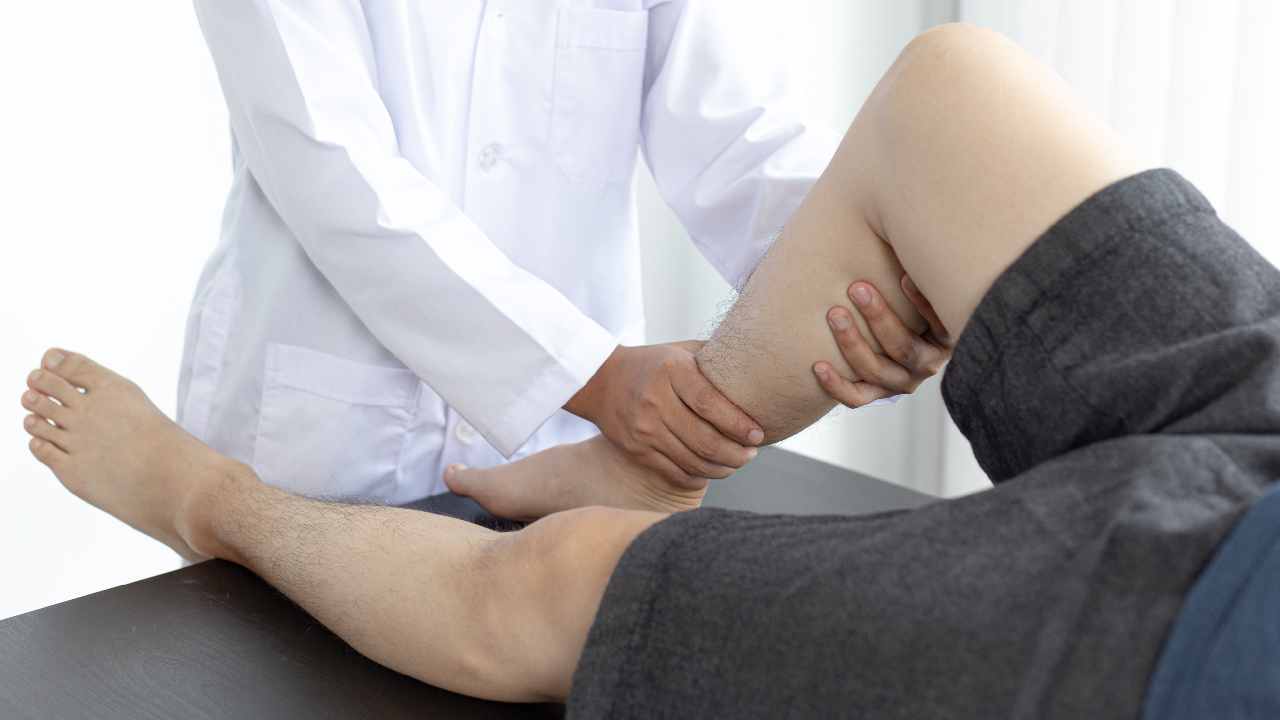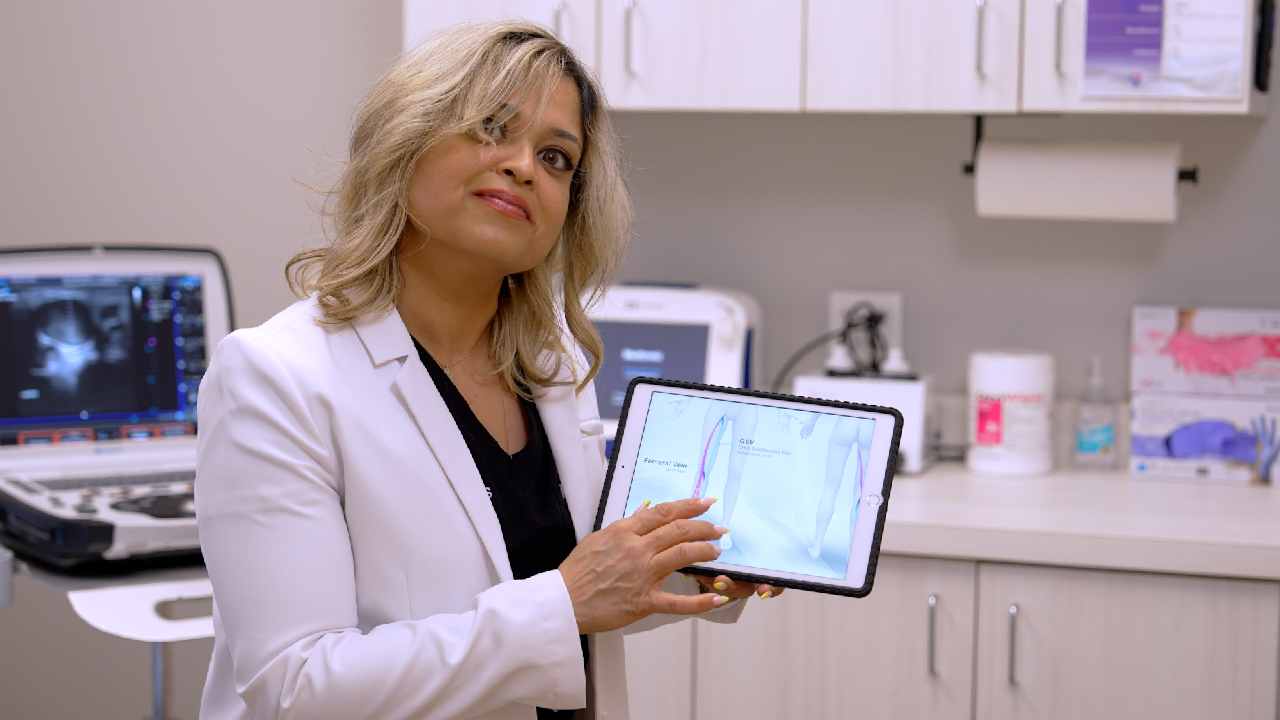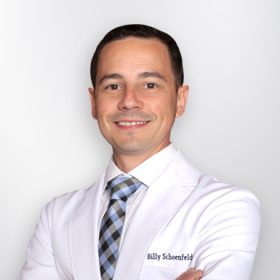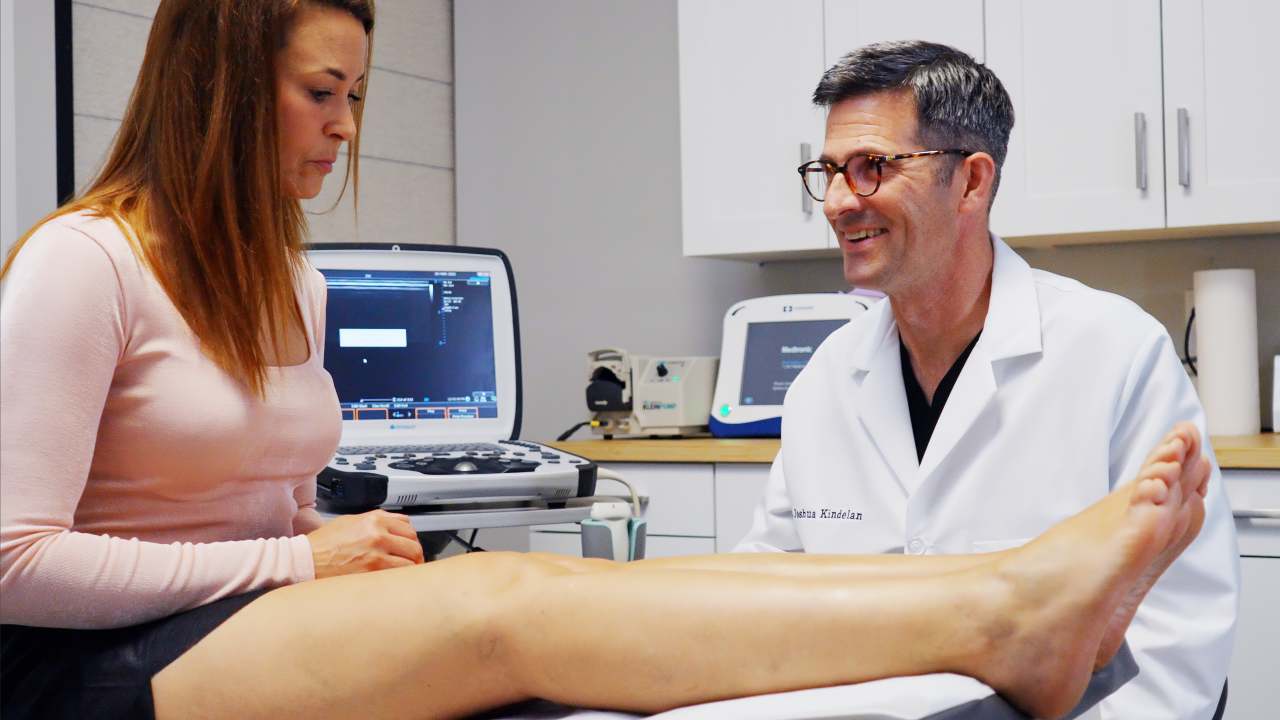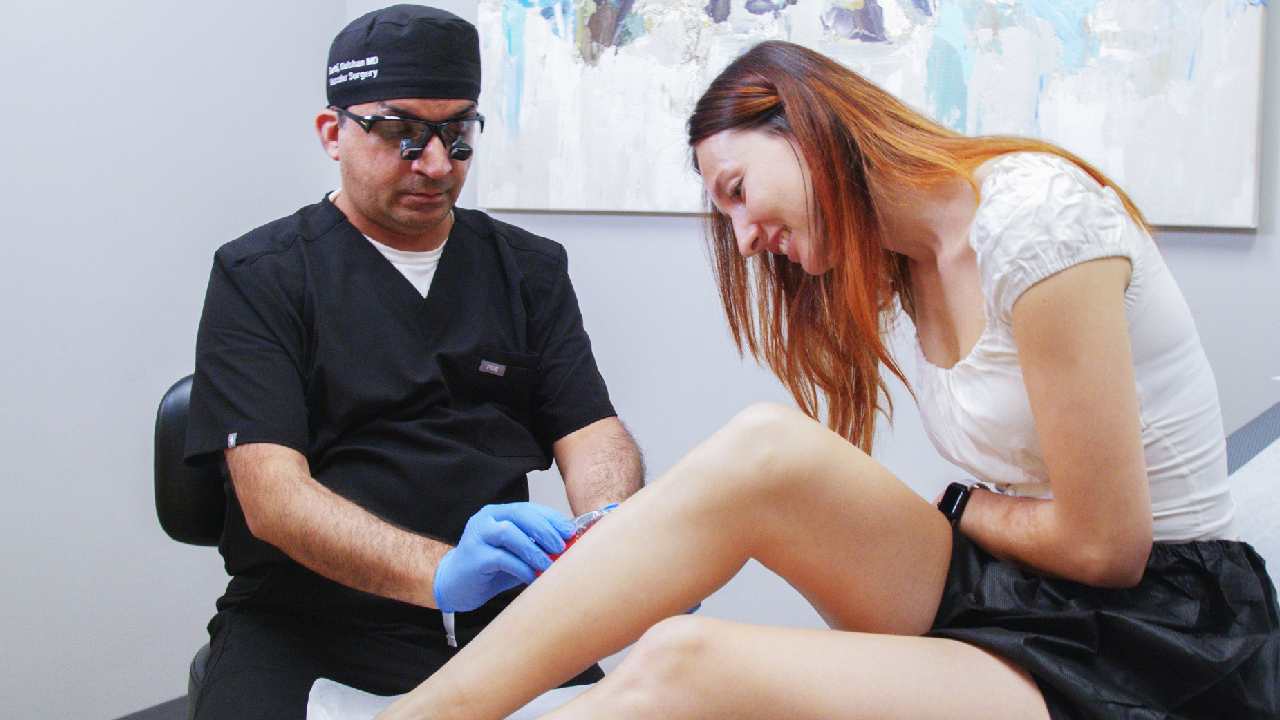
Top Ten Effective Ways to make Spider Veins Go Away!
Mark Twain once said, “Age is an issue of mind over matter. If you don’t mind, it doesn’t matter.” Mark Twain probably never had painful spider veins or varicose veins. He didn’t have to worry about wearing shorts – or a bikini at the beach, unlike more than half the women in the U.S. If you’re one of them, it’s time to stop worrying; we may not have the fountain of youth handy yet, but we can give you some proven treatments to help you get painlessly rid of spider veins.
The internet is filled with home remedies that claim to eliminate spider veins, but none of those will work. The reason is that these veins occur beneath the skin’s surface and become spider-like when blood stagnates in the small veins of your legs. This causes vein walls to expand under pressure, giving them an unsightly purplish-blue appearance.
How to Effectively Get Rid of Spider Veins
Spider veins are a common concern, affecting many people due to poor circulation, prolonged standing, or genetics. While home remedies may claim to help, they do not eliminate spider veins. The good news is that modern medical treatments offer fast and painless solutions.
Are you interested in getting more information about your condition or getting a treatment?
Fill the form below to start!
1. Sclerotherapy Injections
This is the most effective treatment for spider veins. A vein specialist injects a solution into the affected vein, causing it to collapse and be reabsorbed by the body. Sclerotherapy is:
- Minimally invasive
- Virtually painless
- A same-day procedure with visible results in a week
2. Varithena Foam Treatment
This advanced form of sclerotherapy uses foam instead of liquid to treat larger spider veins. It effectively seals off the diseased vein, providing fast relief and cosmetic improvement.
3. Laser Treatment
Laser therapy uses light energy to break down small spider veins, especially in areas where injections may not be ideal. While it enhances cosmetic appearance, it may cause minor skin irritation and takes a few months for full results.
4. Wear Compression Stockings
Compression stockings promote blood flow and reduce symptoms like leg cramps and heaviness. While they don’t remove spider veins, they help prevent further development. A vein doctor can provide custom-fitted stockings for better results.
5. Exercise Regularly
Movement is key to preventing blood stagnation in the legs. Walking, stretching, and light cardio stimulate circulation, reducing the risk of spider veins worsening.
6. Elevate Your Legs
If you sit or stand for long periods, make it a habit to elevate your legs for at least 15 minutes a day. This simple practice reduces pressure on veins and prevents new spider veins from forming.
7. Radiofrequency Ablation (RFA)
If deeper veins are causing spider veins, Radiofrequency Ablation (RFA) may be needed. This minimally invasive procedure uses heat energy to seal off unhealthy veins, preventing them from feeding surface spider veins.
8. Endovenous Laser Treatment (EVLA)
Like RFA, Endovenous Laser Treatment (EVLA) uses laser energy to close unhealthy veins. This technique is an effective alternative for treating underlying vein disease that leads to spider veins.
9. Surgery for Severe Cases
While rarely needed, surgery may be necessary if spider veins are linked to chronic venous insufficiency. Surgical procedures are typically reserved for patients with severe symptoms like skin ulcers.
10. Cosmetic Camouflage
For mild cases, self-tanner or body foundation can effectively cover spider veins. This is not a permanent solution but works well for temporary concealment.
So, which of the ten treatments should you go for?
With all the options available, it can be a challenge to choose the best vein treatment that suits your problem. Our Certified and Harvard-trained physicians have been voted #1 vein doctors in New York, New Jersey, California, and Maryland. They can help you choose the right spider vein treatment – or a combination that would work for you. With our vein treatment clinics in multiple locations, we’re always available to answer your questions and offer the best care available.
FEATURED POSTS BY VEIN DOCTORS









